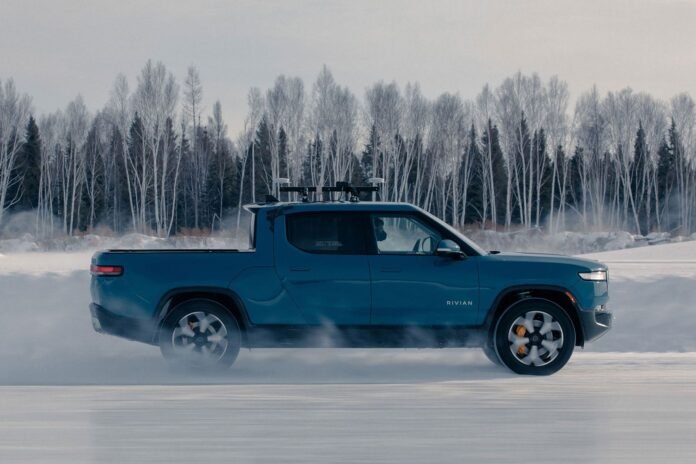If Rivian R1T is going to live up to its electric adventure truck image, it’s going to have to survive conditions that could leave other EVs begging for mercy, and it might just manage that.
MORE FROM RAVZGADGET: Nissan Said Its Improved Hybrid Car System Reduces CO2 Emissions
As Electrek notes, the startup has shared details and a video of winter weather testing in Baudette, Minnesota, where the temperatures dipped to -40F — cold enough to pose a serious problem for many EV batteries.
It won’t surprise you to hear the R1T passed the test (Rivian might not have posted this otherwise), but the dry run showed that the truck’s unique warming technology worked.
Instead of using dedicated heaters that further drain the battery, Rivian relies on a central cold plate that uses relatively little energy to keep battery cells warm enough for ideal performance.
That slows the initial charge if you’ve forgotten to the plugin on a frigid day (your charging rate will be cut in half for roughly an hour), but it should get your R1T to full performance in about 20 minutes.
The winter testing also gave Rivian a chance to confirm that algorithms for traction control worked properly in winter, including in thick snow and on ice.
The details are clearly meant to sell would-be R1T buyers on the truck’s year-round usefulness ahead of its debut later in 2021. It’s also important to stress that rivals are improving as well.
Tesla, for instance, has built heat pumps into recent cars (mainly the Model Y and newer Model 3 units) to improve their performance in chilly conditions.
At the same time, the post illustrates how much EVs have improved in recent years — they’re no longer aimed solely at people in balmy climates where freezing temperatures are rare.
MORE FROM RAVZGADGET: Jaguar Said It Will Only Build All-Electric Cars In 2025
That will be crucial if EVs are going to enter the mainstream and appeal to everyone, even if early examples like the $75,000 R1T are out of reach for most people.













